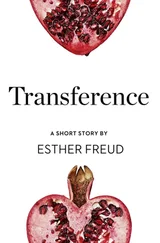“Knock it—”
“Number one, your beautiful daughter Rhoda, cream of everybody’s crop. Number two, your beloved wife, roaring Attila that she is; number three, your store, the grandest furniture palace this side of the Narragansett.”
“I don’t give a damn about the kid from Ohio.”
“Then don’t stand. Step down, retire, give a speech, let them give you a watch.”
Walt notices the lampshade on the night table’s been burned by the bulb. Some maid turned it around so nobody would see it, but this place is crawling with furniture guys.
First thing we’re going to do is inspect the accouterments. Classy operation. This place is world-famous? Still, he likes the way the frayed edge scallops the light on the wall.
Still pacing he says, “Like something in my brain’s a little off. I got these ghosts in the corners of my glasses.”
“Huh?”
“They follow me around. They’re not anything I can see, they’re empty. And they’re not in the room, they’re in my glasses.”
“I don’t get it.”
“What’s not to get? I see things and I don’t see things.”
“You’re melancholy, Walt. Lots of guys are melancholy. Why don’t you clean your glasses?”
“So much I feel like I miss, Alf.”
“Like what?”
Without stopping, Walt shrugs. He reaches the window and spins. His face lightens. “Hong Kong.”
“What about it?”
“I want to go there.”
“So go.”
“You don’t want to go to Hong Kong?”
“I never thought about it.”
“See, there’s your problem. You lack imagination.”
Alf adjusts his pillow, sighs. “It isn’t Sarah? These ghosts in your glasses?”
Walt stops pacing. “Who said anything about Sarah?” He stands in front of the bed and looks down again at Alf, now into his face and also at his big ears, ears that have stuck out like a monkey’s since he’s known him. “Maybe I’ve got a girl,” Walt says, “Porta-geese girl. Maybe I’ve got one in New Bedford.”
Alf sits up, keeps his feet straight so that to Walt he looks like a fat mummy in expensive shoes. They’d planned to have a drink in the bar downstairs, go someplace for dinner, maybe take a walk down State Street and see the Marshall Field’s windows. They’ve always gotten a huge kick out of Chicago, where selling’s more of an art than it is in Massachusetts. Forget art, it’s religion here, kill or be killed, and the old rules don’t apply, and your name and pedigree don’t matter a hoot to anybody. Christ, they let the Jews own half this city, including Sears Roebuck, although they keep Julius Rosenwald’s name out of the name. Every other year the convention’s in Chicago, and Alf, though he sells cream-filled cookies, not dinette sets, always joins him. Last time they gave Alf an honorary NFRA lapel pin. They’ve been friends how long? How many trips like this have they taken? But Walt’s moody, always has been. Not that many people know it.
“If it’s bothering you this much, take it to Jordy Tomason. He’ll rig it. Jordy’s not going to want that piglet yammering anyway. Never seen you so worked up about something like this. What do they give you, anyway? Some free magazines? Some wholesale discounts you’d probably finagle even if you weren’t on the board?”
“How do you know I don’t have a Porta-geese girl in New Bedford?”
In the room, it’s getting hotter. Both men’s hats are on the radiator. They look like big mushrooms. Alf watches Walt with the old sympathy, but also with bitterness. This happens sometimes — he sees his friend with his wife’s eyes. Doris, who’s never been satisfied. With the money Alf’s father never had to leave them, with Alf never amounting to anything more than one of five vice presidents, with his not-so-secret lust over women long dead or who are so far away they may as well be. And now here’s Alf with Dorry’s eyes spoiling things at the Conrad Hilton, making him wish he’d had a better, stronger friend all these years, a man with more gusto, a man with more take charge, a man with—
“If it was a girl,” Alf says, “it would be easy. If it was a girl, I’d cure you for nothing.”
Walt breathes and steps back, lets the wall catch him. He slumps. Rambles on more to the carpet than Alf: “Not even twenty-one. Still lives with her mother and swears like a sailor. Got a little black mustache soft as the whiskers of Rhoda’s dead cat. And legs, Alf, you should see her legs. Legs enough to make dead harpooners try to scratch out of their graves. Because she loves, Alf, swear to God, to dance in the old marine cemetery out near Pancher’s Nursery. Her name is Edna, but she doesn’t look like an Edna. Her parents wanted her to be an Edna, but she’s no Edna. She’s got spiff. She blazes. She’s like the sun, Alf. The sun! ‘A fair hot wench in flame-colour’d taffeta!’ ”
Alf looks at the floor, where there’s one black sock. It could be either his or Walt’s — there’s no way to tell — they both shop for their socks at Pffaf’s. To hell with Horseneck Beach, you can drown on Michigan Avenue, in nonsense, in Ednas who never breathed. Guy as big a walrus as I am, sinking into the fancy carpet. Alf would give him a hand if he could reach him from the bed.
Instead, he only pleads, begs, “Damnit, Walt. Chicago. We’re in Chicago.”
Awnings, Bedspreads, Combed Yarns
EYES SAUCERED by blue-gray half circles, Walt Kaplan watches them knock down City Hall in the name of progress. September 1971. The day is cloudless, the sky white. A helicopter dive-bombs like a horsefly and snatches the great gold eagle from the top of the dome and the crowd hollers, whoops, and the ball attached to the crane swings, the ball swings, and like a flatfoot man defenseless against a sidelong punch from nowhere, the old granite eyesore begins its inward crumble. The roar after each hit like the loudest bowling Walt’s ever heard. The men beside him on the sidewalk, in front of the post office, slap their hands and cheer and stomp their shoes and whoop some more. Nobody’s seen anything like this. The ball swings toward them, a freakish pendulum, and everybody takes a couple of steps back.
Murder is what this is. In fifty years of being alive and walking these streets, how many times a day did he look at this building? Though Walt’s known the worst times, he’s always been one to climb the rungs of the pit. During the hurricane of ’38, though he was young then, he’d laughed as trees took flight and roofs and chimneys landed in neighbors’ yards. Even now, they still call him a crack-up, the genuine article, a real Wisenheimer. At the annual masked poverty ball at the Legion, who knew what he’d show up in. A couple of years ago he went as Salvini the Elder and Salvini the Younger at the same time, painted two extra eyes on his cheeks — all the women were screaming. Last year he somehow jammed himself into his sister-in-law’s tutu. A man with half a million useless stories, Sarah says. (His favorite being how his father, dirty-faced Jewish kid from Lithuania, gets off at the wrong train station, fifteen years old, and thinks he’s in Boston, wanders around Fall River looking for Blue Hill Avenue in Dorchester. And what doyouknow? By the mid-twenties, Kaplan’s Furniture’s got the biggest showroom in Fall River by five thousand square feet. Branch stores at 344 Columbia and the corner of Pleasant and 4th.)
Beloved store that was his, Walt’s, until ten days ago, when they knocked it down, too. Then there were no photographers, no police, no cheers, no helicopter swooping, only Walt, sweat-furious hands in his pockets, watching. “Exercising the state’s right of eminent domain,” the Department of Public Works lawyer had said slowly, as if the words were too difficult for a shopkeeper to understand. But he’d fought them for two years before he lost, in court, the right to own his own property. Then — because the law so ordered — they gave him a quarter of what the store was worth in the name of the good of the Commonwealth. In this country! You’d think Khrushchev was governor. And the idiot mayor proclaims Fall River will be a champion again. A return to the greatness of Spindle City, the Textile Capital of the World. That the new I-95 extension will be the greatest boon since Colonel Durfee opened his first cotton mill at Globe Corners in 1811.
Читать дальше












